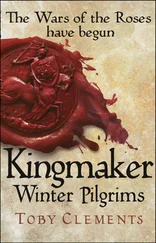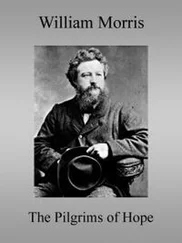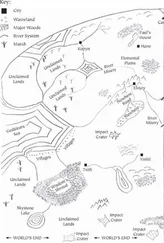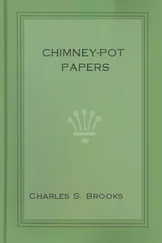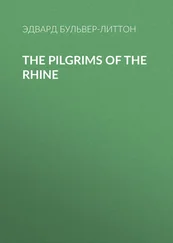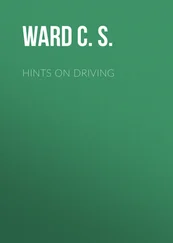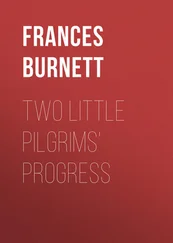Charles Brooks - Hints to Pilgrims
Здесь есть возможность читать онлайн «Charles Brooks - Hints to Pilgrims» — ознакомительный отрывок электронной книги совершенно бесплатно, а после прочтения отрывка купить полную версию. В некоторых случаях можно слушать аудио, скачать через торрент в формате fb2 и присутствует краткое содержание. Жанр: foreign_antique, foreign_prose, на английском языке. Описание произведения, (предисловие) а так же отзывы посетителей доступны на портале библиотеки ЛибКат.
- Название:Hints to Pilgrims
- Автор:
- Жанр:
- Год:неизвестен
- ISBN:нет данных
- Рейтинг книги:3 / 5. Голосов: 1
-
Избранное:Добавить в избранное
- Отзывы:
-
Ваша оценка:
- 60
- 1
- 2
- 3
- 4
- 5
Hints to Pilgrims: краткое содержание, описание и аннотация
Предлагаем к чтению аннотацию, описание, краткое содержание или предисловие (зависит от того, что написал сам автор книги «Hints to Pilgrims»). Если вы не нашли необходимую информацию о книге — напишите в комментариях, мы постараемся отыскать её.
Hints to Pilgrims — читать онлайн ознакомительный отрывок
Ниже представлен текст книги, разбитый по страницам. Система сохранения места последней прочитанной страницы, позволяет с удобством читать онлайн бесплатно книгу «Hints to Pilgrims», без необходимости каждый раз заново искать на чём Вы остановились. Поставьте закладку, и сможете в любой момент перейти на страницу, на которой закончили чтение.
Интервал:
Закладка:
Then, also, at the agent's, for my pleasure, there is a picture of a ship cut down the middle, showing its inner furnishing and the hum of life on its many decks. I study its flights of steps, its strange tubes and vents and boilers. Munchausen's horse, when its rearward end was snapped off by the falling gate (the faithful animal, you may recall, galloped for a mile upon its forward legs alone before the misadventure was discovered) – Munchausen's horse, I insist, – the unbroken, forward half, – did not display so frankly its confusing pipes and coils. Then there is another ship which, by a monstrous effort of the printer, is laid in Broadway, where its stacks out-top Trinity. I pace its mighty length on the street before my house, and my eye climbs our tallest tree for a just comparison.
It is my hope to find a man of like ambition and endurance as myself and to walk through England. He must be able, if necessary, to keep to the road for twenty-five miles a day, or, if the inn runs before us in the dark, to stretch to thirty. But he should be a creature, also, who is content to doze in meditation beneath a hedge, heedless whether the sun, in faster boots, puts into lodging first. Careless of the hour, he may remark in my sleepy ear "how the shadows lengthen as the sun declines."
He must be able to jest when his feet are tired. His drooping grunt must be spiced with humor. When stiffness cracks him in the morning, he can the better play the clown. He will not grumble at his bed or poke too shrewdly at his food. Neither will he talk of graves and rheumatism when a rainstorm finds us unprepared. If he snuffle at the nose, he must snuffle cheerfully and with hope. Wit, with its unexpected turns, is to be desired; but a pleasant and even humor is a better comrade on a dusty road. It endures blisters and an empty stomach. A pack rests more lightly on its weary shoulders. If he sing, he should know a round of tunes and not wear a single melody to tatters. The merriest lilt grows dull and lame when it travels all the day. But although I wish my companion to be of a cheerful temper, he need not pipe or dance until the mists have left the hills. Does not the shining sun itself rise slowly to its noonday glory? A companion must give me leave to enjoy in silence my sullen breakfast.
A talent for sketching shall be welcome. Let him produce his pencils and his tablet at a pointed arch or mullioned window, or catch us in absurd posture as we travel. If one tumbles in a ditch, it is but decency to hold the pose until the picture's made.
But, chiefly, a companion should be quick with a smile and nod, apt for conversation along the road. Neither beard nor ringlet must snub his agreeable advance. Such a fellow stirs up a mixed acquaintance between town and town, to point the shortest way – a bit of modest gingham mixing a pudding at a pantry window, age hobbling to the gate on its friendly crutch, to show how a better path climbs across the hills. Or in a taproom he buys a round of ale and becomes a crony of the place. He enlists a dozen friends to sniff outdoors at bedtime, with conflicting prophecy of a shifting wind and the chance of rain.
A companion should be alert for small adventure. He need not, therefore, to prove himself, run to grapple with an angry dog. Rather, let him soothe the snarling creature! Let him hold the beast in parley while I go on to safety with unsoiled dignity! Only when arbitration and soft terms fail shall he offer a haunch of his own fair flesh. Generously he must boost me up a tree, before he seeks safety for himself.
But many a trivial mishap, if followed with a willing heart, leads to comedy and is a jest thereafter. I know a man who, merely by following an inquisitive nose through a doorway marked "No Admittance," became comrade to a company of traveling actors. The play was Uncle Tom's Cabin , and they were at rehearsal. Presently, at a changing of the scene, my friend boasted to Little Eva, as they sat together on a pile of waves, that he performed upon the tuba. It seems that she had previously mounted into heaven in the final picture without any welcoming trumpet of the angels. That night, by her persuasion, my friend sat in the upper wings and dispensed flutings of great joy as she ascended to her rest.
Three other men of my acquaintance were caught once, between towns, on a walking trip in the Adirondacks, and fell by chance into a kind of sanitarium for convalescent consumptives. At first it seemed a gloomy prospect. But, learning that there was a movie in a near-by village, they secured two jitneys and gave a party for the inmates. In the church parlor, when the show was done, they ate ice-cream and layer-cake. Two of the men were fat, but the third, a slight and handsome fellow – I write on suspicion only – so won a pretty patient at the feast, that, on the homeward ride – they were rattling in the tonneau – she graciously permitted him to steady her at the bumps and sudden turns.
Nor was this the end. As it still lacked an hour of midnight the general sanitarium declared a Roman holiday. The slight fellow, on a challenge, did a hand-stand, with his feet waving against the wall, while his knife and keys and money dropped from his pockets. The pretty patient read aloud some verses of her own upon the spring. She brought down her water-colors, and laying a charcoal portrait off the piano, she ranged her lovely wares upon the top. The fattest of my friends, also, eager to do his part, stretched himself, heels and head, between two chairs. But, when another chair was tossed on his unsupported middle, he fell with a boom upon the carpet. Then the old doctor brought out wine and Bohemian glasses with long stems and, as the clock struck twelve, the company pledged one another's health, with hopes for a reunion. They lighted their candles on the landing, and so to bed.
I know a man, also, who once met a sword-swallower at a county fair. A volunteer was needed for his trick – someone to hold the scarlet cushion with its dangerous knives – and zealous friends pushed him from his seat and toward the stage. Afterwards he met the Caucasian Beauties and, despite his timidity, they dined together with great merriment.
Then there is a kind of humorous philosophy to be desired on an excursion. It smokes a contented pipe to the tune of every rivulet. It rests a peaceful stomach on the rail of every bridge, and it observes the floating leaves, like golden caravels upon the stream. It interprets a trivial event. It is both serious and absurd. It sits on a fence to moralize on the life of cows and flings in Plato on the soul. It plays catch and toss with life and death and the world beyond. And it sees significance in common things. A farmer's cart is a tumbril of the Revolution. A crowing rooster is Chanticleer. It is the very cock that proclaimed to Hamlet that the dawn was nigh. When a cloud rises up, such a philosopher discourses of the flood. He counts up the forty rainy days and names the present rascals to be drowned – profiteers in food, plumbers and all laundrymen.
A stable lantern, swinging in the dark, rouses up a race of giants —
I think it was some such fantastic quality of thought that Horace Walpole had in mind when he commended the Three Princes of Serendip. Their Highnesses, it seems, "were always making discoveries, by accident and sagacity, of things which they were not in quest of: for instance," he writes, "one of them discovered that a mule blind of the right eye had traveled the same road lately, because the grass was eaten on the left side." At first, I confess, this employment seems a waste of time. Sherlock Holmes did better when he pronounced, on finding a neglected whisp of beard, that Doctor Watson's shaving mirror had been shifted to an opposite window. But doubtless the Princes put their deduction to higher use, and met the countryside and village with shrewd and vivid observation.
Читать дальшеИнтервал:
Закладка:
Похожие книги на «Hints to Pilgrims»
Представляем Вашему вниманию похожие книги на «Hints to Pilgrims» списком для выбора. Мы отобрали схожую по названию и смыслу литературу в надежде предоставить читателям больше вариантов отыскать новые, интересные, ещё непрочитанные произведения.
Обсуждение, отзывы о книге «Hints to Pilgrims» и просто собственные мнения читателей. Оставьте ваши комментарии, напишите, что Вы думаете о произведении, его смысле или главных героях. Укажите что конкретно понравилось, а что нет, и почему Вы так считаете.




